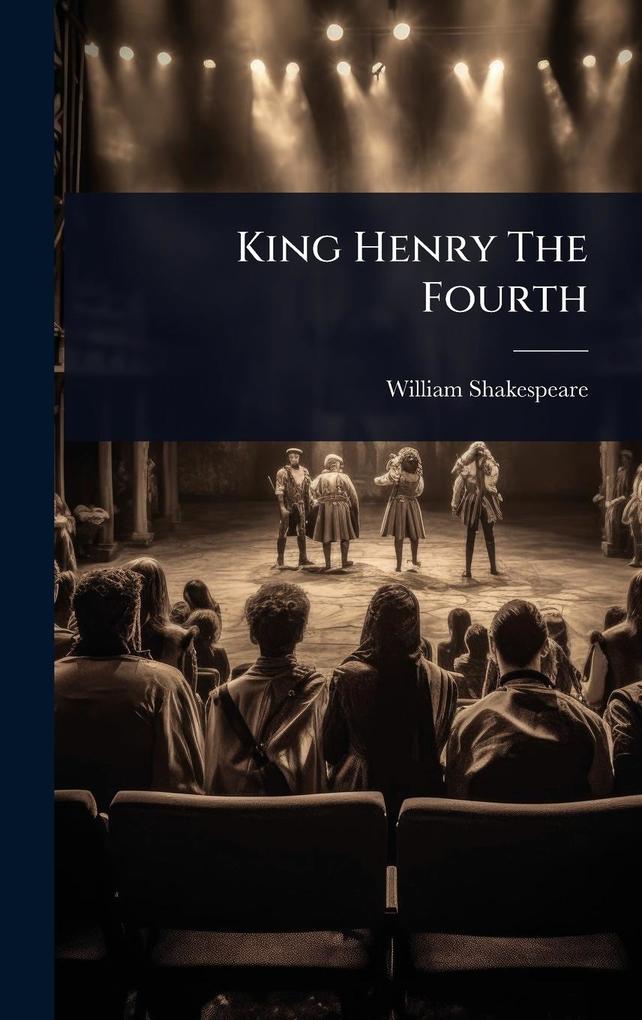
Zustellung: Sa, 26.07. - Do, 31.07.
Versand in 2 Wochen
VersandkostenfreiBestellen & in Filiale abholen:
â € œ King Henry The Fourthâ € is a captivating historical drama by William Shakespeare, exploring themes of kingship, honor, and rebellion in 15th-century England. This play masterfully blends historical events with fictional characters, offering a rich tapestry of courtly intrigue and tavern lowlife. The story revolves around King Henry IV, whose reign is threatened by internal strife and the machinations of powerful nobles. Simultaneously, Prince Hal, the future Henry V, navigates his own path, torn between his royal duties and the allure of the charismatic rogue, Sir John Falstaff.
Shakespeare's vivid language and complex characters bring this tumultuous period of English history to life, making â € œ King Henry The Fourthâ € a timeless exploration of power, loyalty, and the burdens of leadership. A cornerstone of English literature, this play continues to resonate with audiences and readers alike, offering profound insights into the human condition and the enduring challenges of governance.
This work has been selected by scholars as being culturally important, and is part of the knowledge base of civilization as we know it. This work was reproduced from the original artifact, and remains as true to the original work as possible. Therefore, you will see the original copyright references, library stamps (as most of these works have been housed in our most important libraries around the world), and other notations in the work.
This work is in the public domain in the United States of America, and possibly other nations. Within the United States, you may freely copy and distribute this work, as no entity (individual or corporate) has a copyright on the body of the work.
As a reproduction of a historical artifact, this work may contain missing or blurred pages, poor pictures, errant marks, etc. Scholars believe, and we concur, that this work is important enough to be preserved, reproduced, and made generally available to the public. We appreciate your support of the preservation process, and thank you for being an important part of keeping this knowledge alive and relevant.
Shakespeare's vivid language and complex characters bring this tumultuous period of English history to life, making â € œ King Henry The Fourthâ € a timeless exploration of power, loyalty, and the burdens of leadership. A cornerstone of English literature, this play continues to resonate with audiences and readers alike, offering profound insights into the human condition and the enduring challenges of governance.
This work has been selected by scholars as being culturally important, and is part of the knowledge base of civilization as we know it. This work was reproduced from the original artifact, and remains as true to the original work as possible. Therefore, you will see the original copyright references, library stamps (as most of these works have been housed in our most important libraries around the world), and other notations in the work.
This work is in the public domain in the United States of America, and possibly other nations. Within the United States, you may freely copy and distribute this work, as no entity (individual or corporate) has a copyright on the body of the work.
As a reproduction of a historical artifact, this work may contain missing or blurred pages, poor pictures, errant marks, etc. Scholars believe, and we concur, that this work is important enough to be preserved, reproduced, and made generally available to the public. We appreciate your support of the preservation process, and thank you for being an important part of keeping this knowledge alive and relevant.
Produktdetails
Erscheinungsdatum
22. Mai 2025
Sprache
englisch
Seitenanzahl
232
Autor/Autorin
William Shakespeare
Verlag/Hersteller
Produktart
gebunden
Gewicht
503 g
Größe (L/B/H)
234/156/14 mm
ISBN
9781024914702
Bewertungen
0 Bewertungen
Es wurden noch keine Bewertungen abgegeben. Schreiben Sie die erste Bewertung zu "King Henry The Fourth" und helfen Sie damit anderen bei der Kaufentscheidung.









